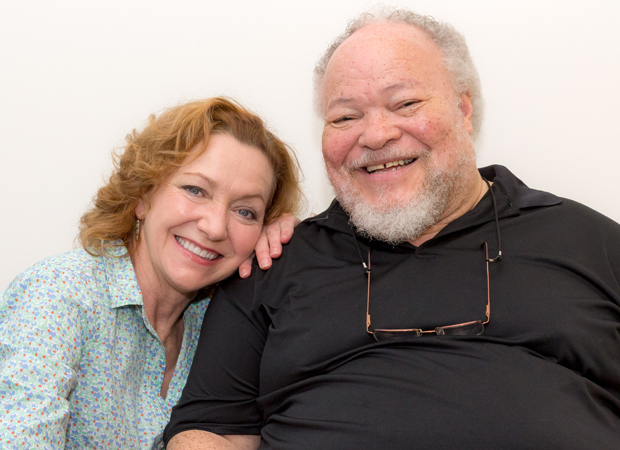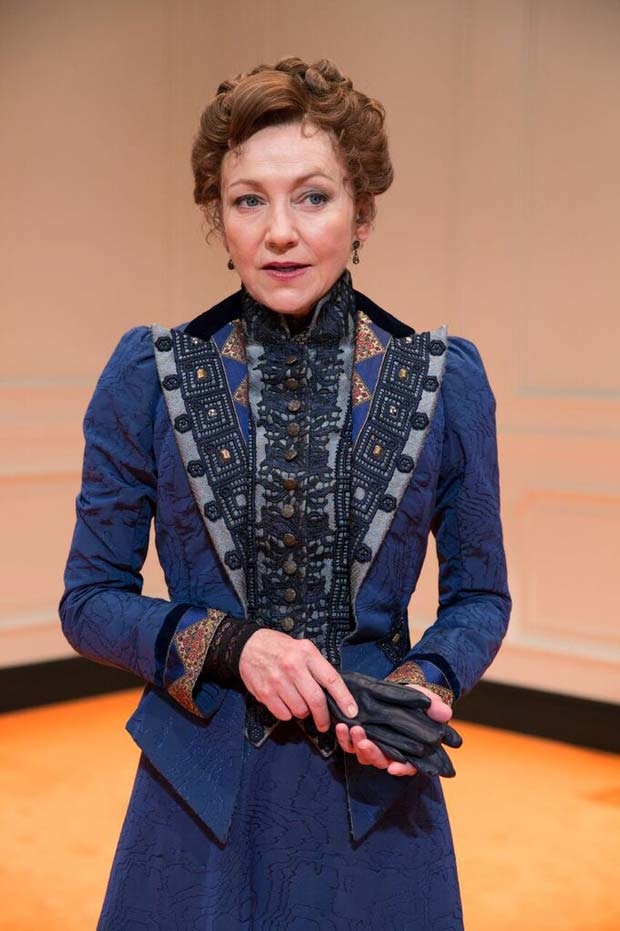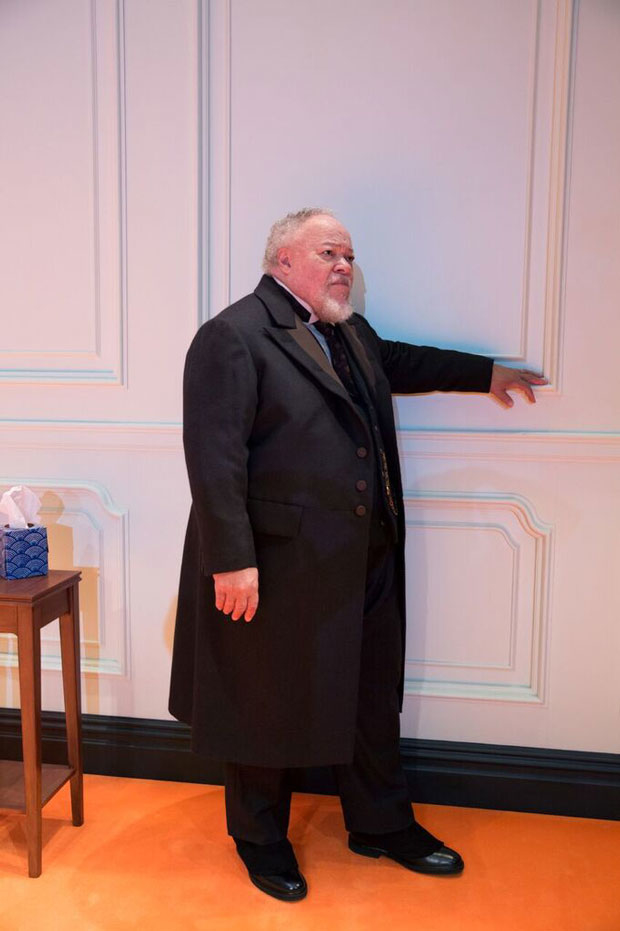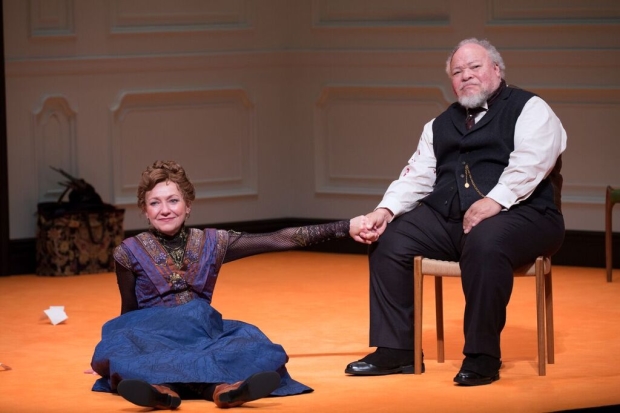Julie White and Stephen McKinley Henderson Are at Each Other's Throats — on Broadway
Two theatrical titans go head-to-head in Lucas Hnath’s Tony-nominated drama, ”A Doll’s House, Part 2”.
"We're all just at each other's throats," Julie White says with a laugh. While they might be going for the jugular in Lucas Hnath's A Doll's House, Part 2, in real life, White, a Tony winner for The Little Dog Laughed, and her scene partner, Tony nominee Stephen McKinley Henderson (Fences), are so warm that it seems like they've known each other for years.
In fact, they haven't. Despite mutual acquaintances (and regional theater stints) in common, White and Henderson only first got to know each other when they began rehearsals to replace Laurie Metcalf and Chris Cooper in Hnath's Tony-nominated "sequel" to Ibsen's A Doll's House earlier this summer. (They join Jayne Houdyshell, the lone holdover from the original company, and fellow newcomer Erin Wilhelmi in Sam Gold's production.)
Together, White and Henderson go head-to-head in what White considers a particularly intense tennis match. But they still manage to laugh their way through. "We had trial by fire," she says. "It's like we're bound now."
This interview has been condensed and edited for clarity.

(© Seth Walters)
A Doll's House, Part 2 is a very intimate play. Did you two know each other before starting rehearsals?
Stephen McKinley Henderson: We had mutual friends who we found out we had.
Julie White: David Dean Bottrell and I did a show together at Buffalo's Studio Arena Theater, Dark of the Moon. And then I left and David got to stay and do "Master Harold"…and the Boys with Stephen.
Stephen: The other person we both had worked with was Jayne Houdyshell.
Julie: At the freakin' Totem Pole Playhouse! Which is this crazy, kind of fantastically great summer theater.
Stephen: 20 minutes from Gettysburg. Jayne and I were in The Boys Next Door.
Julie: I put on Instagram a picture of me and Jayne in A Funny Thing Happened on the Way to the Forum in our bad wigs.
What was the rehearsal process like?
Stephen: I really love doing this gig, and I love giving this play to the people. But it just drove me crazy in the rehearsal hall. It was the most anxiety-ridden rehearsal period. Two-and-a-half weeks.
Julie: I started a little ahead of time because I knew the daunting nature of how much stage time I had. I like to learn things as I go to understand what they are. I'm not sure if that helped me or hurt me.
Stephen: I saw the weight that she was carrying. I did Between Riverside and Crazy where I was onstage talking all the time, and when I wasn't talking, I was either asleep or passed out, but I was onstage. I wanted to be there for her, and she came in really ready to play. The first couple of days, I felt like I was all thumbs. Because we came in together, it was so creative and tempting to find stuff.
Julie: In the time that we had allotted. Now, our feet are totally under us. I feel like I've gotten my arguments down.

(© Julieta Cervantes)
Had you seen the play before signing on to do it?
Julie: I went to see it because I love Laurie Metcalf. I wanted to see her do it and it sounded cool. I was really taken by it from the perspective of a deeply disappointed feminist who had really hoped I would be living in a slightly different universe than I'm living in right now. I said to myself, "I hope I live to play this part." And it was really freaky. They asked me to do it the next day.
Stephen: Oh, wow. I never saw it not knowing. I had read it and thought it was brilliant. It goes into all of those little hard-to-clean places. But I didn’t want to see it before I found the part. And then when I saw it, I was able to suspend disbelief and really watch it and enjoy it because it wasn’t something I was trying to replicate. It was so helpful, finally, to see the audience receive it. But I was also very aware that you could trust this play.

(© Julieta Cervantes)
What's the most challenging part about doing this particular play night after night?
Stephen: It's the challenge of doing every play: to remain a professional virgin. You can't know where it's going. You gotta find your way there each time. That's also the fun of it.
Julie: On the wall on my dressing room are pictures of Serena Williams, Roger Federer, Rafael Nadal, and a lot of Hillary Clinton. For me, I think it might also be like the challenge of playing a great tennis match. It takes concentration. And also, forgiving yourself when you lose it.
I'm devastated by what Nora says at the end of it, "I hope I live to see it." It's hard for me sometimes not to cry during that moment. She thinks she'll make it. She figures she will. I play it like she will make it. Please let us live to see it…soon.
Also, I have to wear a corset, and that made me unhappy. [laughs]

(© Julieta Cervantes)









